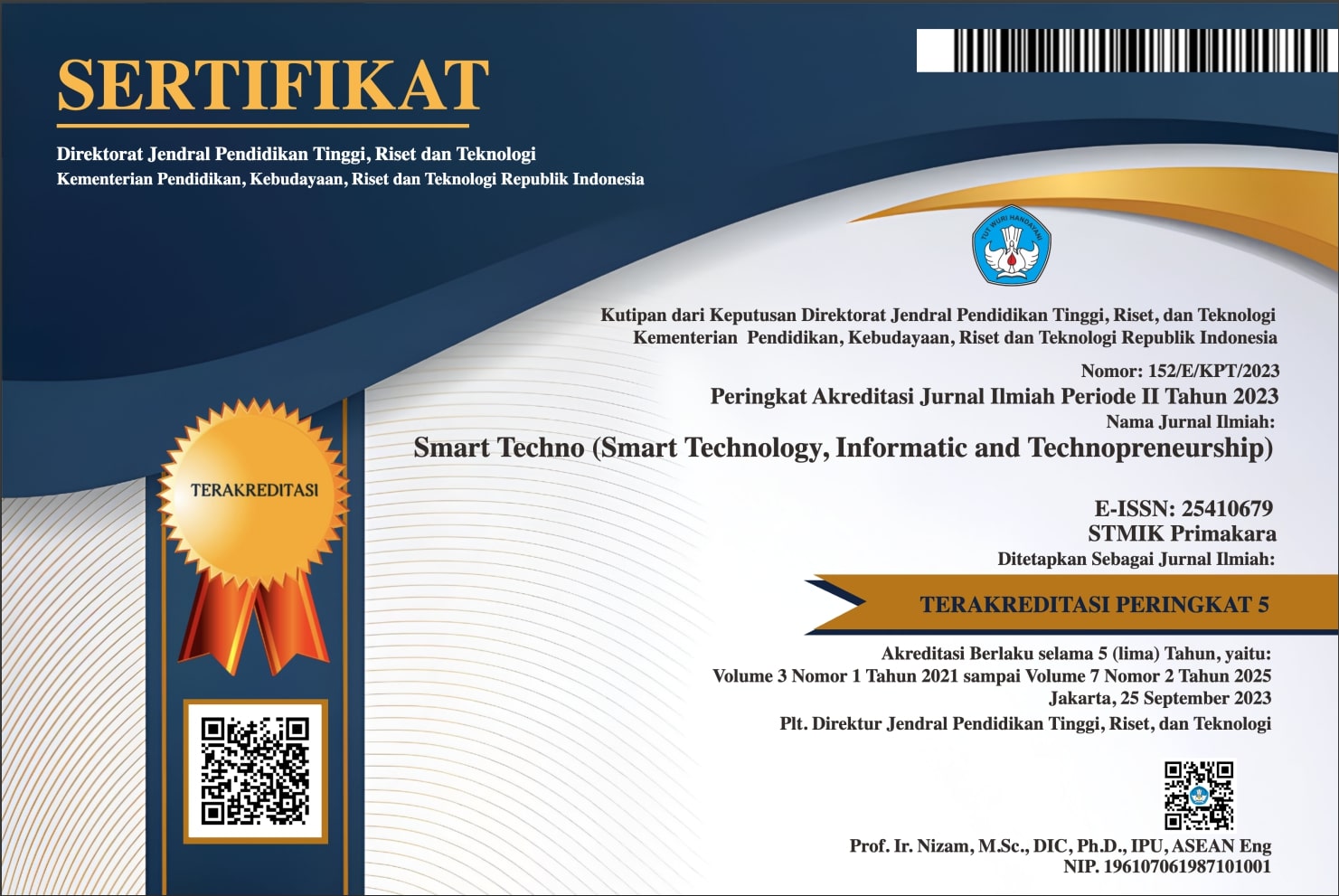Development of a Community Complaint Information System to Support the Realization of a Smart Village in Sibetan
Abstract
A computerized (digital) village is one of the key initiatives introduced by public authorities to support the sustainable development of rural areas across the Republic of Indonesia. One of the primary objectives of a Digital Village is to disseminate information rapidly, accurately, and efficiently to local communities while promoting transparency and public participation. Sibetan Village is among those committed to becoming a digital village through the integration of information and communication technologies into its governance systems. However, in developing a local complaints website, the testing process must strictly adhere to the village’s expected quality standards to ensure usability, reliability, and effectiveness. Villages are widely encouraged to leverage data-driven innovations to enhance administrative processes, improve public service delivery, and foster inclusive community engagement. In Sibetan, one such initiative is the development of a web-based Regional Complaints Information System, designed to facilitate the submission of inquiries and complaints from the public, enabling faster responses by village authorities. The system was designed using the Waterfall method to accommodate user requirements. The outcome of this research is the user interface design of the Sibetan Village community complaints website.
Downloads
References
Arif, Y. W. T., & Yunizar, A. Y. (2020). Rancang Bangun Website Rekam Medis Elektronik di Fasilitas Pelayanan Kesehatan Praktik Dokter. Infokes: Jurnal Ilmiah Rekam Medis dan Informatika Kesehatan, 10(2), 49-54.
Aufa, M. T., & Rohaini, E. (2024). Design of a web-based public complaint service information system for Bagan Pete Subdistrict, Jambi City. Jurnal Informatika dan Rekayasa Komputer (JAKAKOM), 4(1). https://doi.org/10.33998/jakakom.v4i1.
Badrul, M. (2021). Penerapan metode waterfall Untuk Perancangan sistem informasi inventory Pada Toko Keramik bintang terang. PROSISKO J. Pengemb. Ris. dan Obs. Sist. Komput, 8(2), 57-52.
Firmansyah, Y., Maulana, R., & Fatin, N. (2020). Sistem Informasi Pengaduan Warga Berbasis Website (Studi Kasus: Kelurahan Siantan Tengah, Pontianak Utara). J. Cendikia, 19, 397-404.
Juarsyah, I., & Mulyono, H. (2021). Analisis Dan Perancangan Sistem Informasi Pengaduan Masyarakat Berbasis Android Pada Dinas Komunikasi Dan Informatika Kota Jambi. Jurnal Manajemen Sistem Informasi, 6(1), 142-152.
Laila, L., Sulistyawati, S., & Hidayat, M. S. (2024). Evaluasi Penerapan Sistem Informasi Manajemen Rumah Sakit (SIMRS): Studi Literatur. Jurnal Promotif Preventif, 7(4), 710-723.
Nurhayati, W., Sudarmaji, S., & Pahu, G. K. S. S. (2023). Implementasi Metode Waterfall Pada Sistem Informasi Perpustakaan Online Smk Negeri 1 Seputih Agung. JIKI (Jurnal llmu Komputer & lnformatika), 4(2), 196-207.
Padillah, J. N., & Syahputra, M. (2024). Sistem Informasi Layanan Pengaduan Berbasis Web Dalam Peningkatan Pelayanan Publik Informasi Kecamatan Lubuk Begalung. Jurnal Sains dan Teknologi Informatika, 2(1), 71-76. doi: 10.33998/jakakom.v4i1.
Utomo, M. R., Witama, M. N., & Sumarni, R. A. (2020). Perancangan Sistem Informasi Pendaftaran Siswa Baru Berbasis Java Dekstop Pada Madrasah Ibtidaiyah Al-Ihsan. Jurnal Nasional Komputasi dan Teknologi Informasi, 3(3), 323-329. doi: 10.32672/jnkti.v3i3.2518.
Wahid, A. A. (2020). Analisis metode waterfall untuk pengembangan sistem informasi. J. Ilmu-ilmu Inform. dan Manaj. STMIK, no. November, 1(1), 1-5.
Yandri, Y. (2022). Perancangan Dan Implementasi Sistem Informasi Laporan Keuangan Apotek Jati Jaya Dengan Menggunakan Bahasa Pemrograman PHP Dan Database MySQL. Journal of Computer Science and Information System (JCoInS), 3(3), 114-135.
Copyright (c) 2025 I Gede Juliana Eka Putra

This work is licensed under a Creative Commons Attribution 4.0 International License.
Authors who publish with the Smart Techno agree to the following terms:
- Authors retain copyright and grant the journal the right of first publication with the work simultaneously licensed under a Creative Commons Attribution License (CC BY-SA 4.0) that allows others to share the work with an acknowledgment of the work's authorship and initial publication in this journal.
- Authors are able to enter into separate, additional contractual arrangements for the non-exclusive distribution of the journal's published version of the work (e.g., post it to an institutional repository or publish it in a book), with an acknowledgment of its initial publication in this journal.
- Authors are permitted and encouraged to post their work online (e.g., in institutional repositories or on their website) prior to and during the submission process, as it can lead to productive exchanges, as well as earlier and greater citation of published work. (See The Effect of Open Access)







